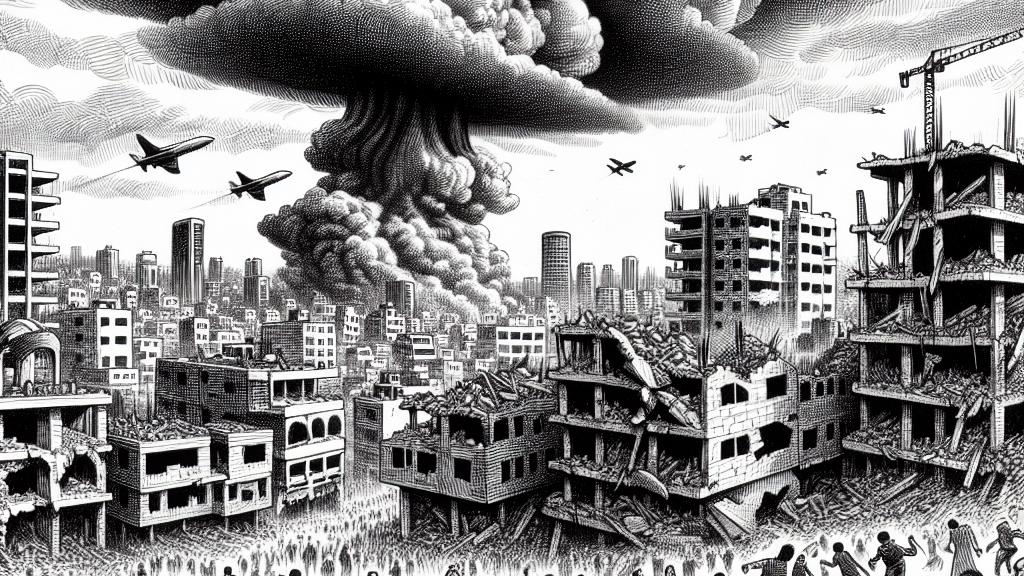Hezbollah Leader Ibrahim Aqil Killed in Israeli Air Strike
Overview
- A high-profile Israeli air strike in Beirut resulted in the death of the top Hezbollah leader, Ibrahim Aqil.
- This significant attack not only claimed the lives of eight individuals but also injured dozens, marking a dramatic escalation in hostilities between Israel and Hezbollah.
- The vow of retaliation from Hezbollah raises urgent concerns about the potential for a wider regional conflict, as tensions continue to soar.

The Day of the Attack
On September 20, 2024, Beirut, the capital of Lebanon, became the backdrop for a dramatic and deadly Israeli air strike targeting Hezbollah. This precision attack obliterated parts of the southern suburbs, renowned as a Hezbollah stronghold. The strike resulted in the death of Ibrahim Aqil, a figure of considerable importance within the organization, commonly associated with orchestrating numerous military operations against Israel. Eyewitness accounts vividly depict scenes of chaos and fear, as civilians were left scrambling for safety amidst the rising smoke and ruined structures. Tragically, the strike resulted not just in Aqil's death but also claimed the lives of eight others and left approximately 59 people injured. Such devastation emphasizes the dangerous nature of this ongoing conflict.
Immediate Fallout and Reactions
In the immediate aftermath, the response from Hezbollah was swift and resolute. They've launched several rocket attacks targeting Israeli military bases, a clear indication of their intent to retaliate. Air raid sirens echoed throughout northern Israel, making civilian life feel increasingly precarious; families huddled in shelters, bracing themselves for possible escalation. Moreover, the IDF backed their actions by alleging that Aqil was involved in devising plans for imminent infiltration attacks aimed at Israeli towns. This justification of a preemptive strike illustrates how the narrow margins of perceived threat can justify escalating violence in a region rife with historical animosities.
A Troubling Future Ahead
The death of Ibrahim Aqil carries significant ramifications for the already fragile situation between Israel and Hezbollah. With retaliatory strikes heightening the stakes, both communities — on either side of the border — now live under the ominous shadow of further military action. Various global leaders have called for restraint and are urging both sides to engage in dialogue to defuse this dangerous situation. The reality is stark: without concerted efforts toward peace, the risk of a broader conflict looms ever larger, as each side appears determined to stand firm. The urgency for diplomatic intervention cannot be overstated, as civilians on both sides desperately yearn for stability in their lives.

Loading...